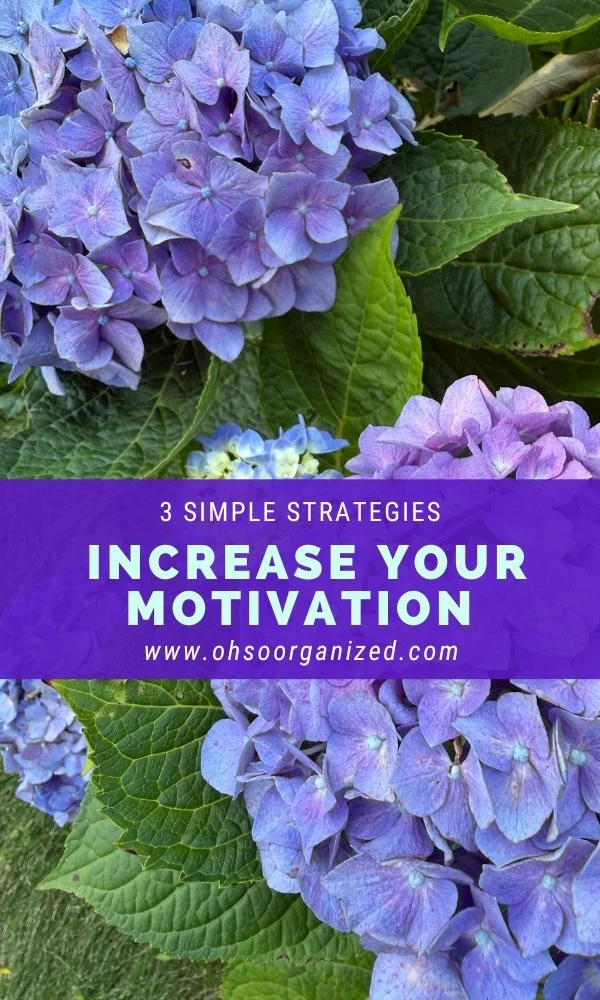Feeling stuck is a common experience. Do you wait to feel motivated before starting a project or task? You might think you need to be in a good mood, have the right energy, or be completely clear about your plan before beginning. However, like with organizing and in life, waiting can keep you stuck. The reality is that motivation doesn’t always come first. More frequently, it follows the act of starting.
When you take that first tiny step, whether it’s decluttering one surface, recycling some papers, or making a short to-do list, you build momentum. Beginning helps you to":
Break through mental clutter.
Build confidence.
Turn what’s overwhelming into something manageable.
Just starting reinforces that progress doesn’t begin with having everything figured out. Getting unstuck starts with taking one small step.
If you’ve been waiting for the perfect time, I encourage you to let go of perfection and take action today. The smallest effort can spark the motivation you’ve been missing.
As James Clear said, “Whenever you are stuck searching for the optimal plan, remember: Getting started changes everything.”
With these ideas in mind, what can help you change everything?
27 Ways to Get Started: A Motivation-Boosting Organizing Checklist
Nike’s iconic motto is “Just Do It.” Similarly, but with a twist, the suggestions in this checklist encourage you to just start with small actions that will help build significant momentum.
Use this checklist when you’re feeling stuck. Completing even one small task can boost the motivation needed to keep going.
THE MOTIVATION-BOOSTING ORGANIZING CHECKLIST
Home Clutter
Make your bed.
Declutter one corner of your desk.
Organize just one category, like shoes, coffee mugs, or bathing suits.
Empty and edit the contents of a tote bag or bin.
Declutter five items from any drawer.
Take out the recycling.
Place a donation bag somewhere visible.
Put five items into the donation bag.
Declutter one shelf or surface.
Recycle ten old magazines, papers, or receipts.
Digital Clutter
Delete or archive ten emails from your inbox.
Clear your desktop of old files.
Remove five phone apps you don’t use.
Unsubscribe from three newsletters you never read.
Time-Induced Starts
Set a 10-minute timer to declutter anything.
Schedule 15 minutes this week to start your next project.
Take five minutes to decide on the “maybe” items.
Spend five minutes reviewing your to-do list and pick the top three tasks you want to accomplish today.
Quick Wins
Toss all the non-working pens in your pencil cup.
Clear the kitchen sink.
Put dirty laundry in the hamper.
Follow up on one item from your ‘pending’ pile.
Label one shelf, bin, or folder.
File or shred a small group of papers.
Clean out your purse.
Remove the trash from your car.
What Small Actions Help You Get Started?
Don’t underestimate the positive impact taking small steps has on motivation. Relief and progress are within your reach. How does starting influence what happens next? Which items from the getting started checklist resonate most with you? What additional items would you like to add to your checklist?
I’d love to hear your thoughts. I invite you to join the conversation.
“The smallest effort can spark the motivation you’ve been missing.”
How Can I Help?
Would you like some support with motivation, activation, or organization? I’d love to help! Virtual organizing is an extraordinary path forward – Local feel with a global reach.
Let’s talk. You can:
Email me at linda@ohsorganized.com or
Call 914-271-5673
Organizing and sustaining motivation is possible, especially with support.










